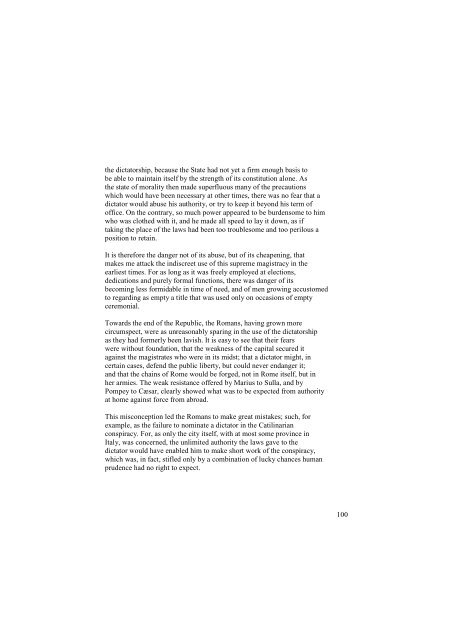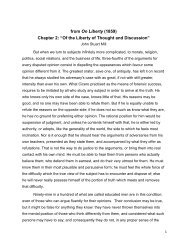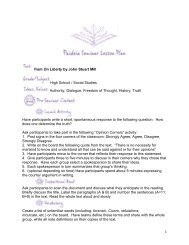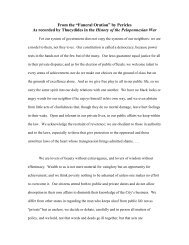Rousseau_contrat-social
Create successful ePaper yourself
Turn your PDF publications into a flip-book with our unique Google optimized e-Paper software.
the dictatorship, because the State had not yet a firm enough basis to<br />
be able to maintain itself by the strength of its constitution alone. As<br />
the state of morality then made superfluous many of the precautions<br />
which would have been necessary at other times, there was no fear that a<br />
dictator would abuse his authority, or try to keep it beyond his term of<br />
office. On the contrary, so much power appeared to be burdensome to him<br />
who was clothed with it, and he made all speed to lay it down, as if<br />
taking the place of the laws had been too troublesome and too perilous a<br />
position to retain.<br />
It is therefore the danger not of its abuse, but of its cheapening, that<br />
makes me attack the indiscreet use of this supreme magistracy in the<br />
earliest times. For as long as it was freely employed at elections,<br />
dedications and purely formal functions, there was danger of its<br />
becoming less formidable in time of need, and of men growing accustomed<br />
to regarding as empty a title that was used only on occasions of empty<br />
ceremonial.<br />
Towards the end of the Republic, the Romans, having grown more<br />
circumspect, were as unreasonably sparing in the use of the dictatorship<br />
as they had formerly been lavish. It is easy to see that their fears<br />
were without foundation, that the weakness of the capital secured it<br />
against the magistrates who were in its midst; that a dictator might, in<br />
certain cases, defend the public liberty, but could never endanger it;<br />
and that the chains of Rome would be forged, not in Rome itself, but in<br />
her armies. The weak resistance offered by Marius to Sulla, and by<br />
Pompey to Cæsar, clearly showed what was to be expected from authority<br />
at home against force from abroad.<br />
This misconception led the Romans to make great mistakes; such, for<br />
example, as the failure to nominate a dictator in the Catilinarian<br />
conspiracy. For, as only the city itself, with at most some province in<br />
Italy, was concerned, the unlimited authority the laws gave to the<br />
dictator would have enabled him to make short work of the conspiracy,<br />
which was, in fact, stifled only by a combination of lucky chances human<br />
prudence had no right to expect.<br />
100











